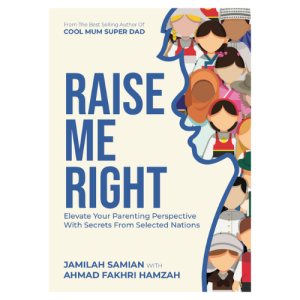What is meant by the term “genius”? How do we raise children who are remarkably intelligent?
Answer:
A genius, says a wise man, is “someone who dazzles us with his exceptional creative ability and originality in any field”. It’s often said that geniuses are super smart individuals who possess an intelligence that’s well above average. Are they? In the first place, how do we define intelligence and how do we measure it?
Intelligence Quotient
There is a tendency for some parents to closely relate Intelligence Quotient (IQ) with intelligence.
The IQ system, formulated by psychologist Alfred Binet and his team upon request by the French government in 1904, was meant to distinguish children who need special education from those who don’t.
Binet himself pointed out that intelligence is much more than a matter of a number computed on a scale. He also stressed that intelligence is subjective, progresses differently from person to person, is not totally dependent on genetics and is not fixed.
Critics of IQ tests contend that at most, IQ may reflect on whether a child gets good grades at school since the emphasis in schools today is linguistics and mathematical/logical capability.
Research shows that there are plenty of people out there who did not score highly in IQ tests yet accomplished superbly beyond school life.
This lends credence to the view that IQ tests are too narrow and covers only a certain angle of human intelligence.
In other words, IQ can’t tell whether a person will be successful in life or not.
The Theory of Multiple Intelligences
The theory of multiple intelligences developed by Dr. Howard Gardner proposes that human beings possess a much broader range of potential. Dr. Gardner identified eight different kinds of intelligences. They are:
- Linguistic intelligence (word smart);
- Logical-mathematical intelligence (number/reasoning smart);
- Visual-Spatial intelligence (picture smart);
- Bodily-Kinesthetic intelligence (body smart);
- Rhythmic intelligence (rhythm smart);
- Interpersonal intelligence (people smart);
- Intrapersonal intelligence (self smart); and
- Naturalist intelligence (nature smart).
Note that these intelligences do not operate independently. Rather, they support and complement on another. A child or adult may be gifted with one or more of these intelligences.
Whether a child is able to excel or not depends on the opportunities, exposure and how much encouragement he receives. It’s back to the effort principle – a child might be full of talent, but what good will that talent be, if nothing is done to hone it? This is where environment is key. Talented children living in far-flung places of poverty are unlikely to have their talents realised.
Think of a Guatemalan twelve-year-old, who has to work the fields, because his family could not afford the school fees. In some parts of Guatemala, people survive on a dollar a day. Think of a five-year-old boy Kashmiri boy who ends up in the carpet industry – weaving all day. Hunger and deprivation force millions of children to work for a paltry sum around the world.

Choose toys and activities that stimulate brain growth.
Dr. Gardner believes some kids end up being tagged as “learning disabled” simply because they think in a unique manner and do not fit into the standard mould. He believes that we possess all eight intelligences, but many are not developed or are underdeveloped due to lack of experiences.
The theory of multiple intelligences supports the view that there’s at least one light bulb waiting to be switched on in every child. A parent who has more than one child will realize how closer to the truth this is. There’s at least one area of passion, of strong interest that can turn him on.
Every child has the potential ability to become exceptionally good, to shine in something worthwhile if he is treated the right way. We parents are in a unique position to find that switch and turn it on. Equally important, what do our children aspire to do with success, once they achieved it? Children must be taught early on that they are here to serve the world, guided by ethics at all times. Success is truly above and beyond how much money, wealth or status one has. Success is putting in your best effort, with what you have. Every single day.
If your child is not doing well in school, see if he can learn better in other ways, not just plain reading and memorising. The concept of Multiple Intelligences helps us to see that children are unique individuals with different learning styles.
Whether you believe in The Theory of Multiple Intelligences is secondary. What matters more is knowing that children are born full of promise. It might not match exactly what you think, but thrive they will, if you were to give them the space, time and love they need.
Read this article in Malay: Genius – Anak Luar Biasa Pintar











